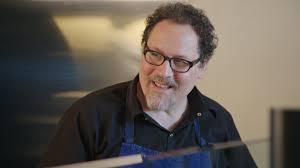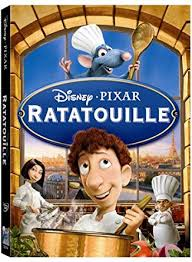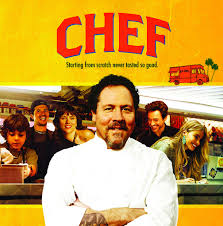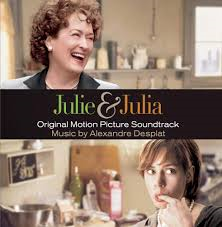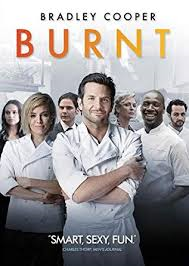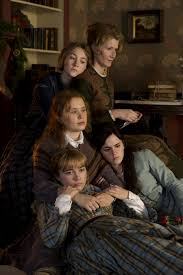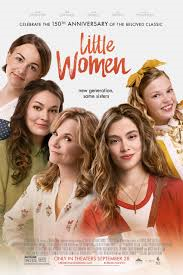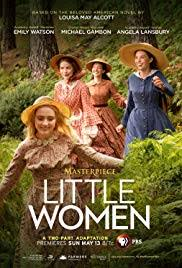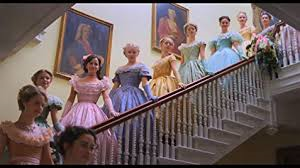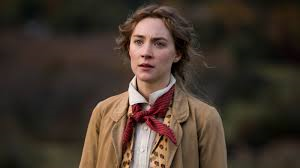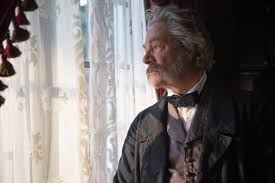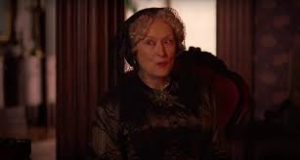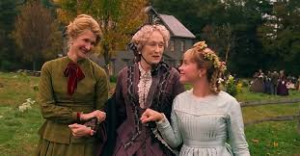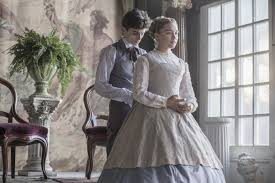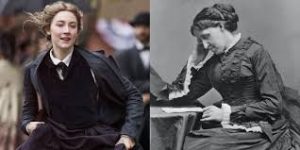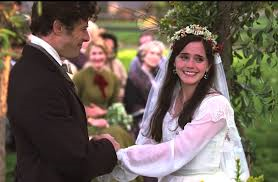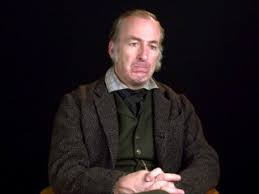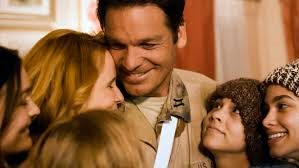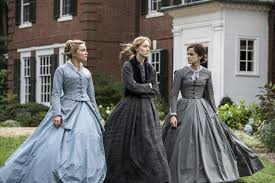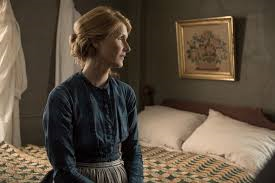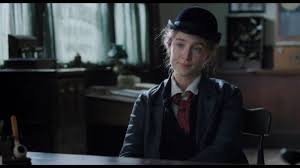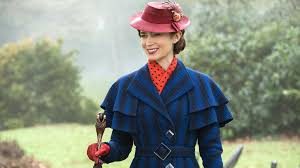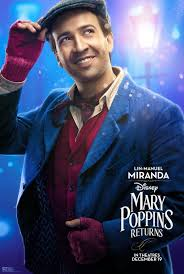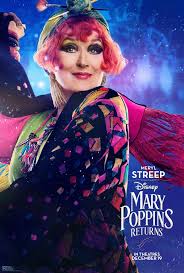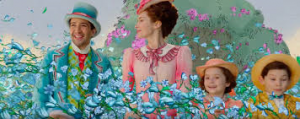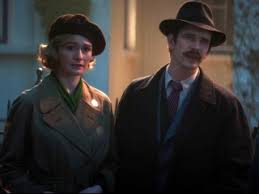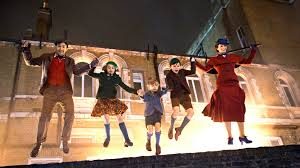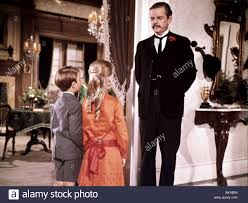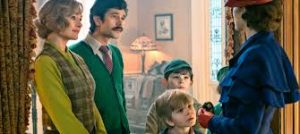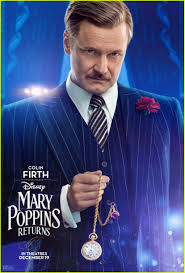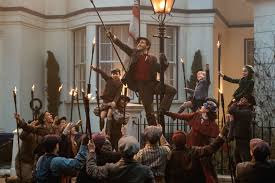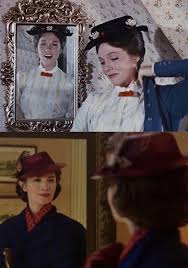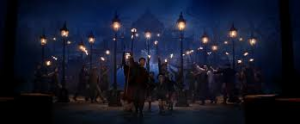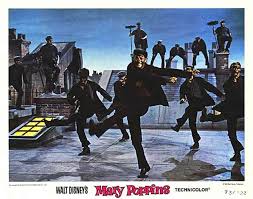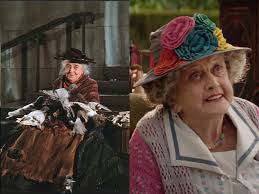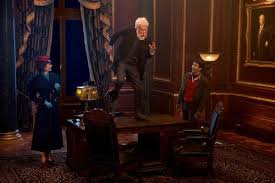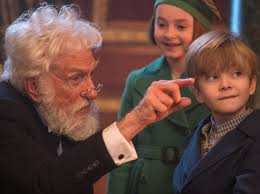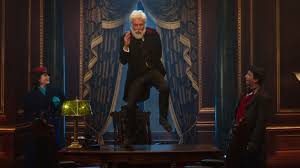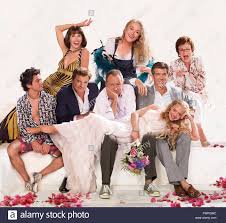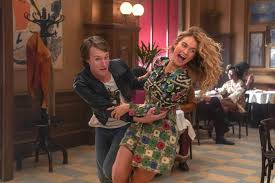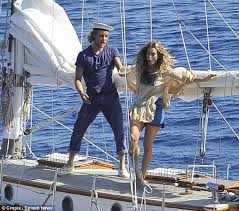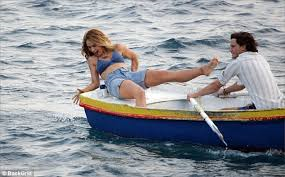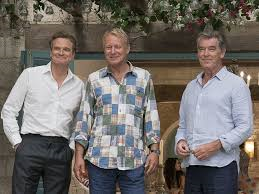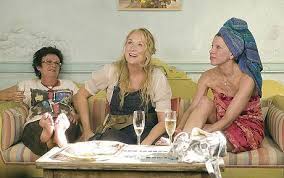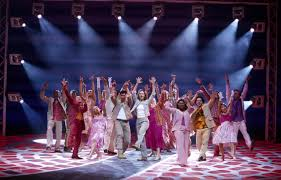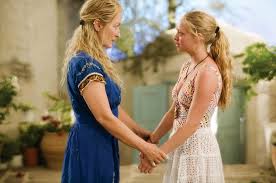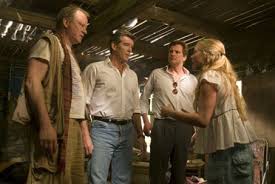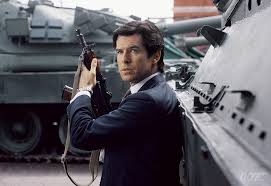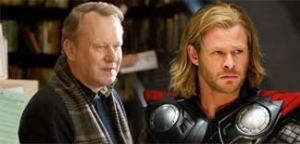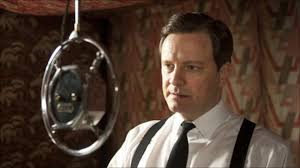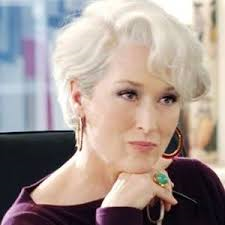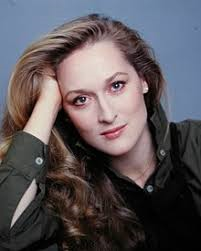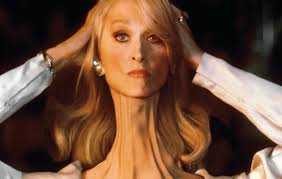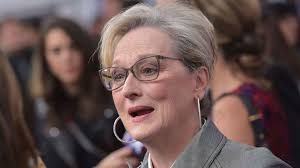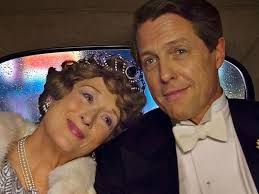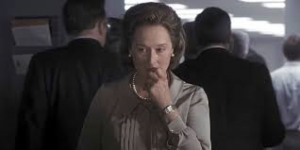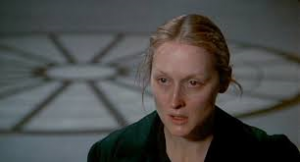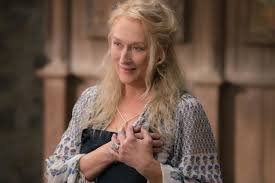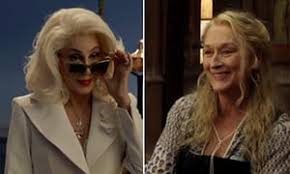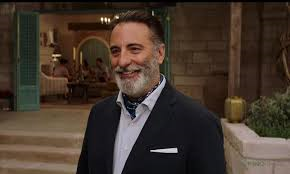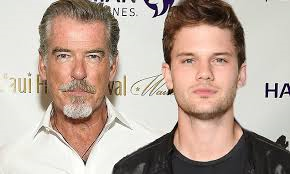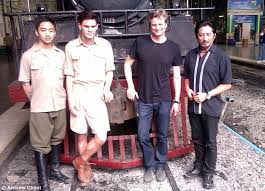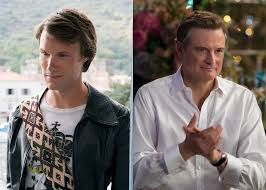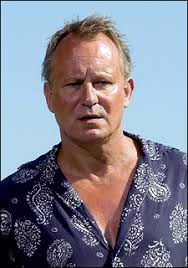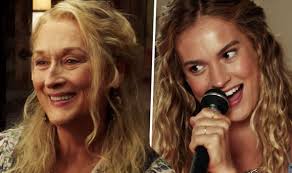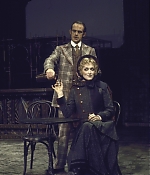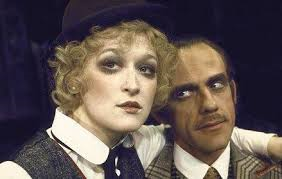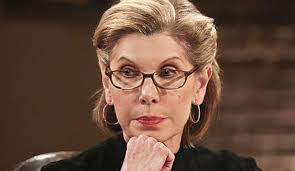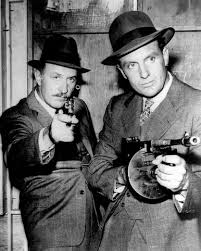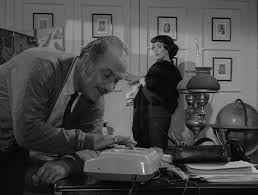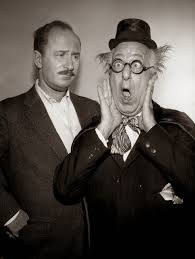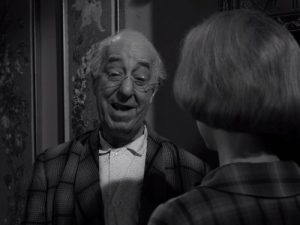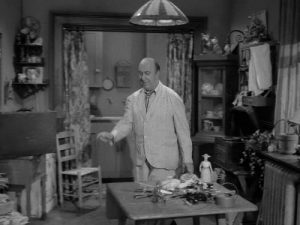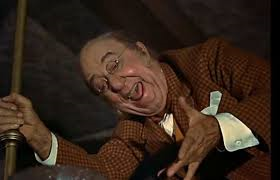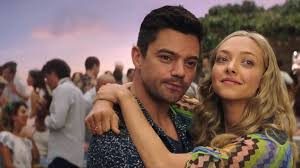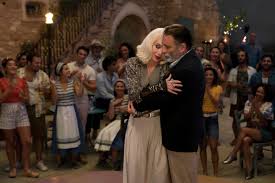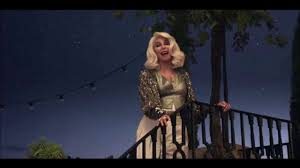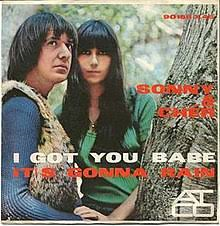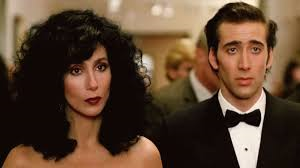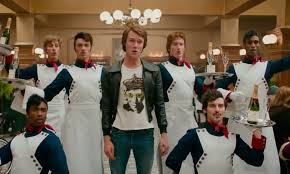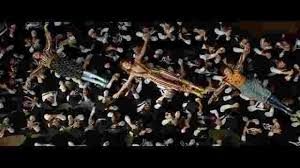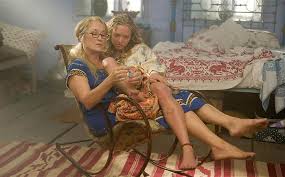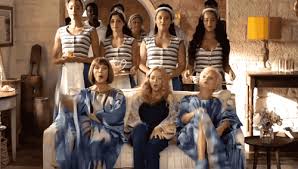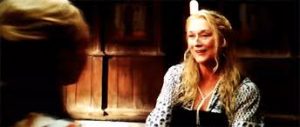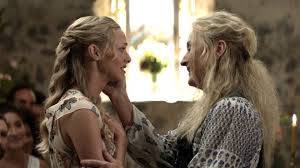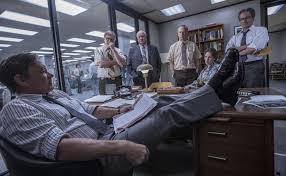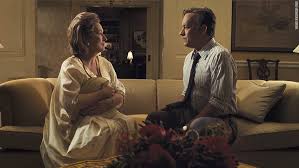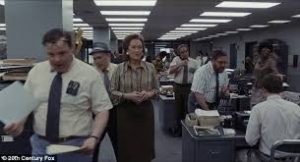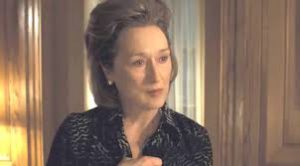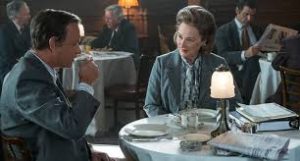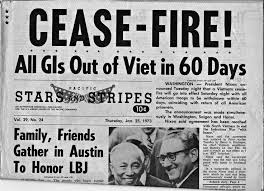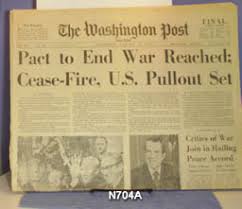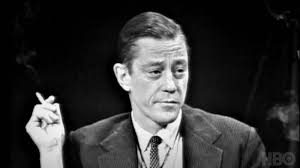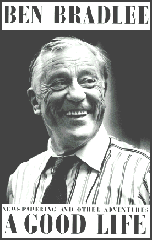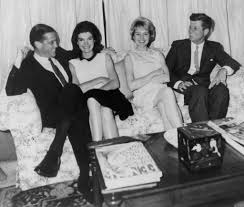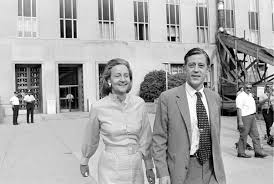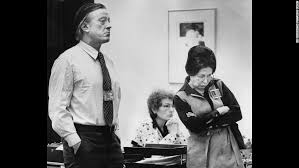AUDIO OPTION OF ARTICLE ON COOKING DURING THE TIME OF QUARANTINE
Now that we’re stuck at home, with fewer and fewer restaurants – even take out – to choose from, and less and less money with which to buy from them, I suspect many of you are now digging into the bottom of your freezers playing “Ready Set Cook: The Home Version”.
 For those of you unfamiliar with “Ready Set Cook,” it was a show wherein two opposing teams were given ingredients which had to be included to make an entire meal. For example Team A might choose something like: chocolate, asparagus and jalapenos. And Team B might have chosen: sugared breakfast cereal, liver and olives. A limited time later, the team which came up with the most edible dish(es) won.
For those of you unfamiliar with “Ready Set Cook,” it was a show wherein two opposing teams were given ingredients which had to be included to make an entire meal. For example Team A might choose something like: chocolate, asparagus and jalapenos. And Team B might have chosen: sugared breakfast cereal, liver and olives. A limited time later, the team which came up with the most edible dish(es) won.
When all of our six homeschooled kids were over five we decided to give this a try – WITH the added caveat that the Team who gave the ingredients to the other team had to be willing to EAT whatever the other team came up with. (Saved on wasted food and disgusting items.) As we were almost evenly split between genders it was Boys versus Girls and we all UNANIMOUSLY agreed that the boys’ Three Stooges Spaghetti won out hands down over – whatever forgettable (possibly inedible) thing we girls had made.
With that in mind, and understanding that many people are doing more cooking for more people over a longer period of time and with fewer ingredients than they ever thought possible, I thought it might be fun to suggest some:
MOVIES WHICH INSPIRE YOU TO COOK
Now I am NOT going to include anything gross like: The Cook, the Thief, His Wife and Her Lover OR Sweeney Todd – which themes of revenge, violence and cannibalism would likely be offensive to 99% of even the adult audience. All of these chosen movies legitimately make me hungry and wanting to head to the kitchen either for a snack or to break out my pots and pans.
RATATOUILLE
This absolutely delightful, complex, funny and intelligently plotted movie about a French farm rat who could cook, was and is a favorite in our house. Remi is a rat who, unlike his VERY large family, and due to his intelligence and refined sense of smell, does not WANT to eat the garbage of which his family happily partakes. He also doesn’t want to steal from people any more. So, after a hilarious sequence of events, Remi finds himself not only separated from his brothers and sisters, but secretly tutoring a schlemiel in a multi-star Parisian kitchen on the art of fine cuisine.
Ratatouille features the truly delicious voice acting of: 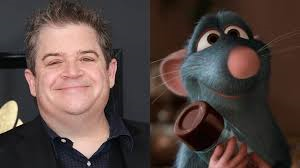 Patton Oswalt (Agents of S.H.I.E.L.D) as Remi,
Patton Oswalt (Agents of S.H.I.E.L.D) as Remi,  Brian Dennehy as Django, Remi’s Dad,
Brian Dennehy as Django, Remi’s Dad, 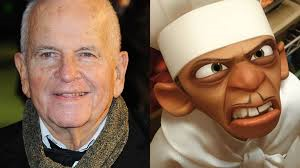 Ian Holm as Remi’s nemesis,
Ian Holm as Remi’s nemesis, 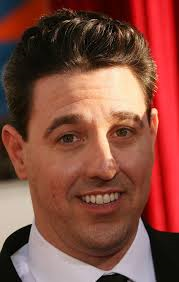
 Lou Romano (pretty “cheesy”, right?) plays the young chef Linguini,
Lou Romano (pretty “cheesy”, right?) plays the young chef Linguini, 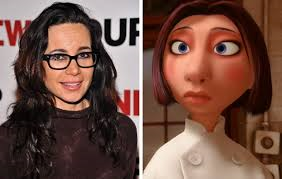 Jeaneane Garofalo as Tatou, Linguini’s love interest, and the late legendary
Jeaneane Garofalo as Tatou, Linguini’s love interest, and the late legendary  Peter O’Toole as the menacing and bitter food critic, appropriately named, Ego. To spice things up there are also the traditional Pixar voice cameos by Brad Bird, the director, and the Pixar-ubiquitous John Ratzenberger. To blend everything together the artistry of hundreds of talented animators and music composed by the creative versatility of Michael Giacchio (composer for dozens of incredible films from … The Incredibles to Jojo Rabbit and Star Trek Beyond) and you have a cinematic feast for the whole family.
Peter O’Toole as the menacing and bitter food critic, appropriately named, Ego. To spice things up there are also the traditional Pixar voice cameos by Brad Bird, the director, and the Pixar-ubiquitous John Ratzenberger. To blend everything together the artistry of hundreds of talented animators and music composed by the creative versatility of Michael Giacchio (composer for dozens of incredible films from … The Incredibles to Jojo Rabbit and Star Trek Beyond) and you have a cinematic feast for the whole family.
JULIE AND JULIA
Working our way up the age ladder, this is a movie which, though without sex or violence, has a few “naughty” jokes between married couples and sexual references, as well as some profanity.
The premise of this very cute movie is based on a true experience of a young woman who decides to work her way through the ENTIRETY of Julia Child’s Mastering the Art of French Cooking. Much like the movie The French Lieutenant’s Woman, which also starred Meryl Streep, it tells two couple’s stories, separated in time by decades, in a corresponding way. On the one hand is the love story of the marriage between 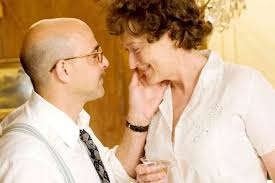 Julia Child (Meryl Streep) and her devoted husband Paul (Stan Tucci) covering the time right after World War II through the almost miraculous publication of her now famous book. Unable to have children and finding herself in France as the wife of a member of the OSS, predecessor to the CIA, she found herself with not a lot to do so threw herself into learning genuine French cuisine in order to pass it on to “regular” housewives in America.
Julia Child (Meryl Streep) and her devoted husband Paul (Stan Tucci) covering the time right after World War II through the almost miraculous publication of her now famous book. Unable to have children and finding herself in France as the wife of a member of the OSS, predecessor to the CIA, she found herself with not a lot to do so threw herself into learning genuine French cuisine in order to pass it on to “regular” housewives in America.
The parallel story is of 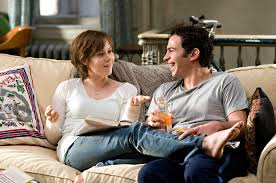 Eric and Julie Powell (Amy Adams and Chris Messina) in the early 2000’s. He is a magazine writer and she is a writer stuck in a job she hates at a call center. To relieve her dissatisfaction she decides to blog her way through cooking every recipe in Julia Child’s book. The results of both Julie’s efforts as well as the modern couple’s part of the movie were hit or miss, but
Eric and Julie Powell (Amy Adams and Chris Messina) in the early 2000’s. He is a magazine writer and she is a writer stuck in a job she hates at a call center. To relieve her dissatisfaction she decides to blog her way through cooking every recipe in Julia Child’s book. The results of both Julie’s efforts as well as the modern couple’s part of the movie were hit or miss, but 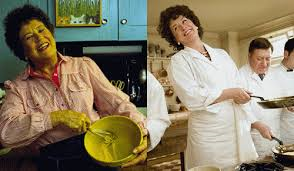 Streep’s brilliant portrayal of Child and the beautiful chemistry filled scenes with
Streep’s brilliant portrayal of Child and the beautiful chemistry filled scenes with 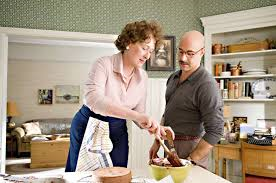 Streep and Tucci are worth the price of admission alone.
Streep and Tucci are worth the price of admission alone.
CHEF
The next course is the charming Chef, written, directed and starring Jon Favreau (Happy, from the Marvel movies, especially the Iron Man franchise) with several of his Marvel friends, as well as some tasty performances from others. Favreau plays Casper, a creative and 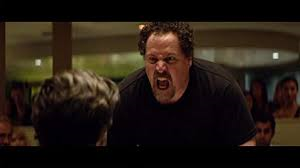 somewhat temperamental chef at a fine dining establishment owned and managed by
somewhat temperamental chef at a fine dining establishment owned and managed by 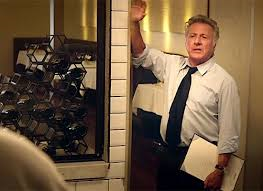 Rive (played by the American cinematic treasure Dustin Hoffman), who does not appreciate Casper’s creativity spilled out all over his traditional menu.
Rive (played by the American cinematic treasure Dustin Hoffman), who does not appreciate Casper’s creativity spilled out all over his traditional menu.
With the financial and/or emotional support of his ex-wife  (Sofia Veraga), her very eccentric ex-husband
(Sofia Veraga), her very eccentric ex-husband  Marvin (Robert “Iron Man” Downey, Jr.), Sofia and Casper’s young teen son, Percy
Marvin (Robert “Iron Man” Downey, Jr.), Sofia and Casper’s young teen son, Percy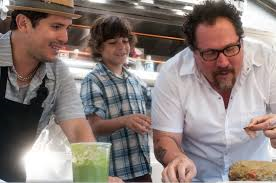 (Emjay Anthony), Casper’s best friend
(Emjay Anthony), Casper’s best friend  Molly (Scarlett “Black Widow” Johannsen),
Molly (Scarlett “Black Widow” Johannsen),  partner (John Leguizamo), and a harsh food critic
partner (John Leguizamo), and a harsh food critic 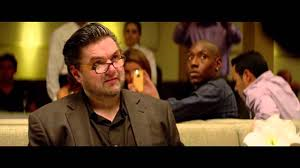 Ramsey (Oliver Platt), Casper strikes out around the country in a
Ramsey (Oliver Platt), Casper strikes out around the country in a  food truck specializing in Cuban food.
food truck specializing in Cuban food.
The movie becomes far more than a comedy about a guy starting a new business, but rises, like yeast in homemade bread, into an analogy for relearning family love, having the faith to start over, the charity to mend relationships, and the courage to try something new.  It’s a funny, endearing, and a lovely little movie.
It’s a funny, endearing, and a lovely little movie.
BUT it has a LOT of bad language. And while there is no sexual activity it is talked about, sometimes in crude ways, usually for humor or guys “bragging” or joking with each other.
So mid-teens at least.
BURNT
Finally for the ADULT ONLY crowd is a movie about a difficult man seeking redemption from his alcoholism as well as wrestling with his inability to connect with others.  A gifted chef, Adam (Bradley Cooper – voice of Rocket from Guardians of the Galaxy), freshly from a self-created rehab in which he stays sober while shucking ONE MILLION oysters, aspires to gain Michelin stars for his new restaurant.
A gifted chef, Adam (Bradley Cooper – voice of Rocket from Guardians of the Galaxy), freshly from a self-created rehab in which he stays sober while shucking ONE MILLION oysters, aspires to gain Michelin stars for his new restaurant. 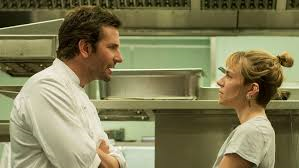 He is confidant but manipulative, brilliant but verbally abusive. His greatest virtue is his self-honesty, slow to come to fruition but ultimately genuine – to accept responsibility for his sins, as he seeks to clean up the messes he has made.
He is confidant but manipulative, brilliant but verbally abusive. His greatest virtue is his self-honesty, slow to come to fruition but ultimately genuine – to accept responsibility for his sins, as he seeks to clean up the messes he has made.
The ersatz family with which he needs to make peace is populated by a wonderful ensemble cast. His talented second in command is Helene, (Sienna Miller). His boss and owner of the restaurant is
Helene, (Sienna Miller). His boss and owner of the restaurant is  Tony, with whom Adam has a complicated personal relationship, played by Daniel Bruhl, another Marvel compatriot – the nemesis in Captain America – Civil War. Adam hires
Tony, with whom Adam has a complicated personal relationship, played by Daniel Bruhl, another Marvel compatriot – the nemesis in Captain America – Civil War. Adam hires 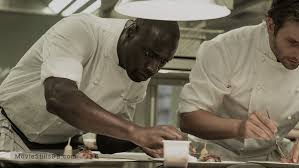 Michel (Omar Sy – Intouchables) as part of a debt of honor. Montgomery (Matthew Rhys – A Beautiful Day in the Neighborhood) is a rival
Michel (Omar Sy – Intouchables) as part of a debt of honor. Montgomery (Matthew Rhys – A Beautiful Day in the Neighborhood) is a rival  with whom Adam has a complicated professional relationship.
with whom Adam has a complicated professional relationship. 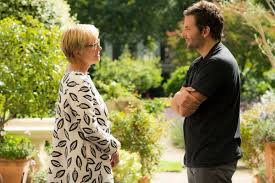 Dr. Rosshilde (Emma Thompson) is his therapist and confidante, hired by a very nervous Tony, who has the unenviable task of being sure he stays clean and reasonably sane.
Dr. Rosshilde (Emma Thompson) is his therapist and confidante, hired by a very nervous Tony, who has the unenviable task of being sure he stays clean and reasonably sane.
The arc of Adam, as a person and in his relationship with his team, reminded me a bit of my own experiments in making a chocolate souffle.  If, in your anxiety to succeed, you hurry the process, you will, more like than not, end up with something that is unfinished at its core and burnt and hard, crusty and unpleasant, on the outside. BUT if you take your time, adjust your expectations to the creation’s needs, in effect turn down the temperature and exercise patience,
If, in your anxiety to succeed, you hurry the process, you will, more like than not, end up with something that is unfinished at its core and burnt and hard, crusty and unpleasant, on the outside. BUT if you take your time, adjust your expectations to the creation’s needs, in effect turn down the temperature and exercise patience, 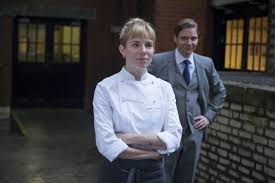 then you will end up with something that may not be what you initially planned, but will be delightful in its own unique brand of perfection.
then you will end up with something that may not be what you initially planned, but will be delightful in its own unique brand of perfection.
There is a good deal of close to nude moments, as well as a LOT of bad language – more than a few referencing sex. There is also the issue of drug addiction – discussion, therapy and the negative results – so mostly under the umbrella of “bad warning” and certainly not as an example to be followed. Adam has emotional control issues and occasionally gets violent in bursts of anger.
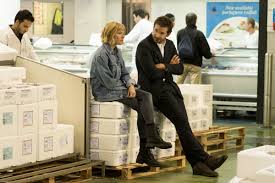 Ultimately though, this is a movie about redemption and repentance, structured around the art of making edible masterpieces ….. but not on the menu for the kiddies.
Ultimately though, this is a movie about redemption and repentance, structured around the art of making edible masterpieces ….. but not on the menu for the kiddies.
So there you go – from Completely Family Friendly to Adults Only and a couple in between. If you are of the right culinary spirit (and age) try these delectable movies about people who would have no trouble staying home and spending the day – COOKING! 
